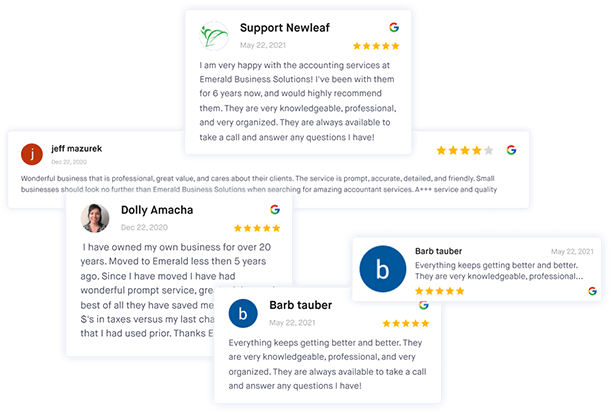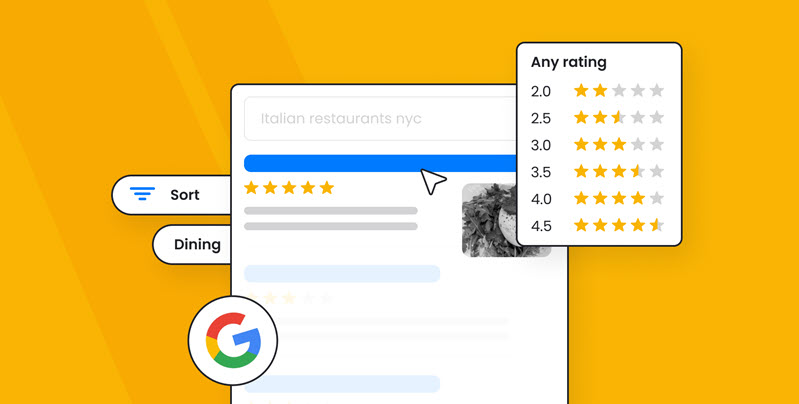Regardless of the type or size of a company, managing your online reputation is critical to its success. But what is reputation management?
Reputation management is the practice of monitoring and influencing an individual's or company's online reputation. It involves multiple steps, includes several subsectors, and can make or break a business in today's digital age.
You may be aware of what reputation management is, but perhaps you're looking for some practical examples that you can easily implement? If this is the case, this article will help you.
In this article, we'll define reputation management, explore its benefits, and provide examples of successful strategies. We will explore techniques on how to manage your reputation, and how to implement reputation management planning.
What is Reputation Management?
The act of monitoring and curating the public image of an individual, organization, or brand on the internet is known as reputation management. This process involves tracking and evaluating the comments and feedback about the entity on various online platforms and implementing strategies to safeguard or enhance their reputation.
To enhance reputation, one should take steps such as promoting positive content, addressing negative feedback, debunking false information, and utilizing third-party media to promote the organization or company.
Reputation management is increasingly important in today's digital age, where information spreads quickly and can have a significant impact on the success or failure of an individual or organization.
How to Define Reputation Management?
Reputation management aims to establish and uphold a favorable image, reliability, and trustworthiness among various parties such as stakeholders, customers, employees, and investors. However, reputation management comprises several categories, each with distinct approaches and components.
- Online Reputation Management (ORM): This focuses specifically on managing the online reputation of an individual, company, or brand, as described in the previous answer.
- Brand Reputation Management: This focuses on managing the reputation of a brand and involves activities such as monitoring brand mentions, creating positive associations with the brand, and addressing any negative feedback or complaints.
- Corporate Reputation Management: This focuses on managing the reputation of a company and involves activities such as crisis management, stakeholder engagement, and corporate social responsibility initiatives.
- Personal Reputation Management: This focuses on managing the reputation of an individual, particularly public figures such as celebrities or politicians. It involves activities such as media relations, public speaking, and social media management.
The main objective of the various aspects of reputation management is to create a favorable perception, develop reliability and trustworthiness, and reduce any adverse effects on the reputation of the subject.
What is Corporate Reputation Management?
The process of managing and influencing how customers, employees, investors, partners, and the public perceive a company or organization is known as corporate reputation management.
This includes observing and evaluating the image of the company across different platforms like media, social media, and review sites. It also entails taking preemptive measures to sustain or advance the company's reputation.
The goal of corporate reputation management is to establish a positive reputation for the company and mitigate any potential negative impact on its reputation, which can affect its financial performance, employee morale, and customer loyalty.
This can involve strategies such as crisis management, stakeholder engagement, corporate social responsibility initiatives, and transparent communication with stakeholders.
In today's highly connected and transparent business environment, where a company's reputation can easily suffer from negative news or social media activity, corporate reputation management is crucial.
Therefore, companies need to invest in reputation management to build a strong brand image and maintain a positive reputation over time.

Manage online reviews with ease
Get more 5-star reviews and take control of your online reputation with ReviewsOnMyWebsite.
Why is Brand Reputation Management so Important?

Brand reputation management is crucial for businesses and organizations for several reasons:
Benefit #1 – Establishes Trust and Credibility
The primary objective of any growing brand is to develop trust among its new customers. A positive brand reputation helps to establish trust and credibility among customers, investors, and other stakeholders, which can lead to increased loyalty and sales.
Benefit #2 - Mitigating Negative Impact
Proactive business owners activate reputation management strategies to avoid potential stumbling blocks that can be devastating for a business that is building momentum.
If businesses don't manage their brand reputation, negative news, reviews, or comments can rapidly spread through social media and other online channels, severely harming their reputation. However, by proactively managing their brand reputation, businesses can promptly deal with and reduce any negative impact on their reputation.
Benefit #3 – Provides Competitive Advantage
Many businesses try to stand out from their competition by having a unique product, advanced technology, or excellent customer service. Staying up-to-date with consumer online reviews could be an easy way to gain an advantage over local competitors.
A positive brand reputation can provide a competitive advantage over rival businesses, particularly in crowded markets where brand loyalty is a key factor in purchasing decisions.
Benefit #4 - Financial Performance
Social proof is an important factor in influencing modern customers. If a person in your neighborhood is looking for goods or services that are comparable to the ones you provide and finds a favorable review from one of your clients, they are probably going to take it into consideration.
A positive brand reputation can improve a company's financial performance by increasing sales, attracting investors, and lowering the cost of capital.
Benefit #5 - Employee Morale
Successful businesses rely on the people who handle day-to-day activities. A good brand reputation can also increase employee morale because they feel proud to work for a respected brand.
Improving work performance is just one benefit of having happy employees. They are also more inclined to provide exceptional customer service. In general, brand reputation management is a crucial aspect of establishing a positive brand image, earning trust and respect, and minimizing any negative effects on your reputation.
3 Key Areas of Reputation Management for Businesses to Monitor
Effectively managing reputation involves implementing various strategies, platforms, and procedures. Although customized reputation management strategies are necessary for businesses based on their industry and nature, certain key areas of reputation management should be monitored by all businesses, which are the following three.
1. Online Reviews

There are many online review websites that specialize in different areas. For instance, if you sell products on Amazon as a product manufacturer or retail company, you may be familiar with their online consumer reviews as Amazon is one of the pioneers of this service.
Websites such as Yelp, Angi.com, Apartments.com, and Zillow allow customers to leave reviews, whether positive or negative, for various industries. As a result, businesses should try to keep an eye on these platforms, respond to negative feedback, and showcase positive customer experiences.
Prioritize the platforms that matter most—Google leads the way, with 86.2% of consumers using it to check reviews, followed by Yelp and Facebook.
2. Social Media

One way for consumers to give feedback is through social media accounts like Facebook. If your business has a presence on Facebook, it's important to monitor it for brand mentions and customer comments. Respond to inquiries and complaints and share positive brand content published on all social networks.
It's also a good idea to check other public social media channels – including Twitter, Instagram, and YouTube to stay ahead of any negative feedback.
3. Search Engine Results
To ensure that potential customers find your business online, it's important to monitor search engine results for any negative information and promote positive content. You can review news articles about your business, set up Google alerts that mention your brand, and review web pages that showcase positive experiences from your customers.
Just like how search engines display webpage results based on keywords, your future customers will likely use keywords to find your business. It's recommended to monitor results for your company name, key executives, and products or services.
5 Reputation Management Examples
Hopefully, by now, you have a solid understanding of the who, what, where, and why's of staying ahead of your business's online reputation. So, let's provide five real world examples of how any type or size of business can activate an effective reputation management strategy.
Example #1 - Responding to Negative Reviews

If a customer leaves a negative review on online platforms like Yelp, Google My Business, or social media, a company can respond by recognizing the customer's concerns, saying sorry, and offering to solve the problem. This shows that the company values feedback from customers and is devoted to dealing with any issues that arise.
Example #2 - Crisis Management
In the event of a crisis, like a product recall or negative media attention, companies may create a crisis management plan. This is known as PR Reputation Management.
This plan details the steps to address the situation and communicate with those affected. It may involve issuing an apology, providing compensation, or implementing new policies to prevent similar incidents from occurring.
Example #3 - Proactive Social Media Management
To create a favorable brand image and win customer trust, it is recommended that your business engage with customers on social media by generating and sharing positive brand content, promptly responding to inquiries and complaints.
If you can monitor social media posts that showcase negative experiences, or positive feedback, you'll have a solid opening strategy.
Example #4 - Corporate Social Responsibility
One way to practice proactive reputation management is by implementing corporate social responsibility programs, such as aiding local charities, decreasing carbon emissions, or advocating for diversity and inclusion. This demonstrates the company's dedication to social and environmental concerns and can improve its standing with stakeholders.
Example #5 – Increasing Positive Online Reviews
You can enhance your business's credibility by directing your happy customers to popular review websites where your business has a profile.
To simplify this process, you can use software like ReviewsOnMyWebsite to send email and SMS messages to your customers that contain direct links to websites like Google, Facebook, and others.
While most public review websites have strict regulations about paying for positive reviews, there are no issues with making it easier for your clients to provide feedback themselves.
Key Takeaways
Overall, reputation management involves a range of strategies and tactics we've listed below that are tailored to the specific needs of the company and its stakeholders.
Every proactive business owner realizes that the best way to reduce the potential of mistakes or negative situations is to establish solid procedures and habits. One of the best reputation management strategies is using automated technology to increase the volume of positive reviews, ratings, and comments from your satisfied customers.

Manage online reviews with ease
Get more 5-star reviews and take control of your online reputation with ReviewsOnMyWebsite.
Frequently Asked Questions
What is a reputation manager?
A reputation manager is a professional who ensures that the online reputation of individuals, businesses, or organizations accurately represents their brand image. They monitor, shape, and maintain online reputations with the main objective of protecting their clients' reputations.
These experts use various techniques to handle their clients' reputations, such as keeping track of online reviews, social media mentions, and search engine results. They might also focus on highlighting positive content and interacting with customers or followers to establish a robust online community.
How to improve your online reputation?
Building a positive online reputation can be difficult, but there are ways to make it easier. One effective strategy is to use online reputation management tools to monitor your name or brand mentions. This helps you quickly identify negative comments or reviews so you can respond appropriately.
How to choose a reputation management company?
To find a reliable company to manage your online reputation, search for one that has a history of effectively handling their clients' reputations. Additionally, ensure that their team possesses expertise in up-to-date reputation management tactics.
You should also choose a company that values transparency and open communication. They should be willing to provide regular updates on their progress and keep you informed about any changes or updates to your online reputation.
What is the difference between reputation management and public relations?
Reputation management and public relations are two distinct, yet related, fields. While they both focus on managing a company's or individual's public image, they differ in their respective objectives and methods.
The main goal of reputation management is to keep track of and control an individual's or company's image on the internet. This involves keeping an eye on social media mentions, reviews, and search engine results, and taking action to rectify any negative content that could harm their reputation.
In contrast, public relations encompass a wider scope that revolves around handling interactions between an organization or individual and its multiple stakeholders. This comprises managing relationships with the media, addressing crises, and fostering connections with clients, investors, and other stakeholders.
How can you monitor your reputation online?
It is crucial to manage your brand image by monitoring your online reputation. Several online reputation management strategies and tools are available that can assist you in tracking mentions of your brand or name across social media, news outlets, and other online platforms.
These tools can notify you if there is any negative customer feedback or customer reviews. The ultimate goal of monitoring your business online is to reduce the potential of a negative reputation.
What is reputation management in PR?
Reputation management is an important aspect of public relations (PR) that involves controlling how the public views a person or organization. The main objective of this process is to monitor, influence, and enhance the reputation of an individual or company. The aim of reputation management in PR is to create and uphold a favorable perception among the general public and key stakeholders.
What is reputation management in SEO?
SEO reputation management (search engine optimization) refers to the practice of managing and enhancing the online presence of a person or a business by regulating the search engine results. The main objective is to manage and control the SERP, by highlighting positive content while minimizing negative content.
The goal of reputation management in SEO is to ensure that when someone searches for a particular name or brand online, the search engine results display positive and relevant content on the first page, and negative or irrelevant content is pushed down to the second page or lower.
What is social media reputation management?
Social media reputation management refers to the act of observing and controlling the online reputation of a person or business on social media. It entails monitoring social media mentions, answering comments and messages, and taking measures to resolve any adverse content that could potentially harm an individual's or a brand's reputation.
Managing your reputation on social media is crucial, as these platforms have become a powerful and widely used source of information for consumers. Any negative feedback or review can quickly go viral, causing harm to your personal or business reputation.



